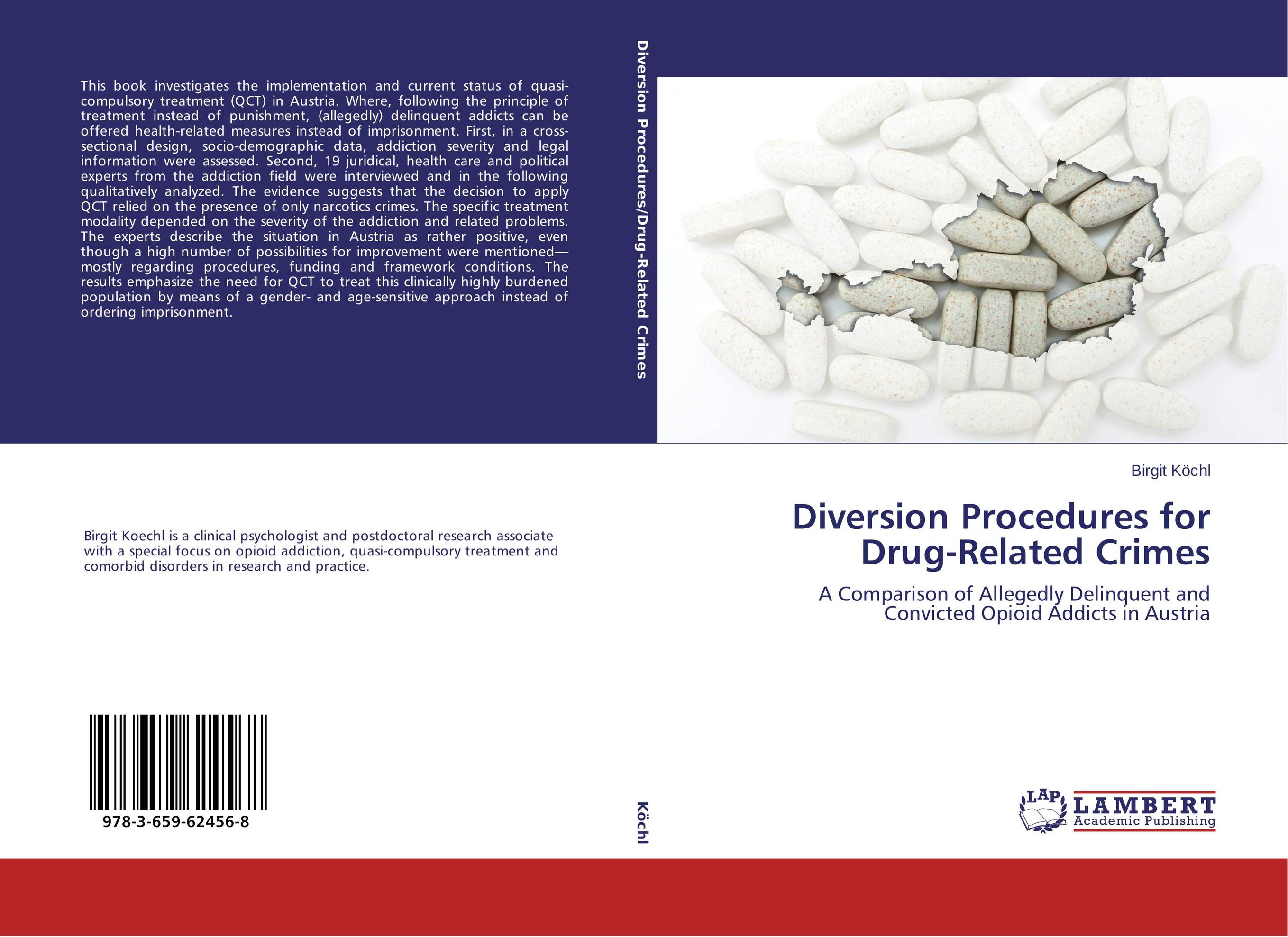| Поиск по каталогу |
|
(строгое соответствие)
|
- Профессиональная
- Научно-популярная
- Художественная
- Публицистика
- Детская
- Искусство
- Хобби, семья, дом
- Спорт
- Путеводители
- Блокноты, тетради, открытки
Diversion Procedures for Drug-Related Crimes. A Comparison of Allegedly Delinquent and Convicted Opioid Addicts in Austria

В наличии
| Местонахождение: Алматы | Состояние экземпляра: новый |

Бумажная
версия
версия
Автор: Birgit K?chl
ISBN: 9783659624568
Год издания: 2014
Формат книги: 60×90/16 (145×215 мм)
Количество страниц: 104
Издательство: LAP LAMBERT Academic Publishing
Цена: 32031 тг
Положить в корзину
| Способы доставки в город Алматы * комплектация (срок до отгрузки) не более 2 рабочих дней |
| Самовывоз из города Алматы (пункты самовывоза партнёра CDEK) |
| Курьерская доставка CDEK из города Москва |
| Доставка Почтой России из города Москва |
Аннотация: This book investigates the implementation and current status of quasi-compulsory treatment (QCT) in Austria. Where, following the principle of treatment instead of punishment, (allegedly) delinquent addicts can be offered health-related measures instead of imprisonment. First, in a cross-sectional design, socio-demographic data, addiction severity and legal information were assessed. Second, 19 juridical, health care and political experts from the addiction field were interviewed and in the following qualitatively analyzed. The evidence suggests that the decision to apply QCT relied on the presence of only narcotics crimes. The specific treatment modality depended on the severity of the addiction and related problems. The experts describe the situation in Austria as rather positive, even though a high number of possibilities for improvement were mentioned—mostly regarding procedures, funding and framework conditions. The results emphasize the need for QCT to treat this clinically highly burdened population by means of a gender- and age-sensitive approach instead of ordering imprisonment.
Ключевые слова: Addiction, Austria, diversion, Opioid, quasi-compulsory treatment



